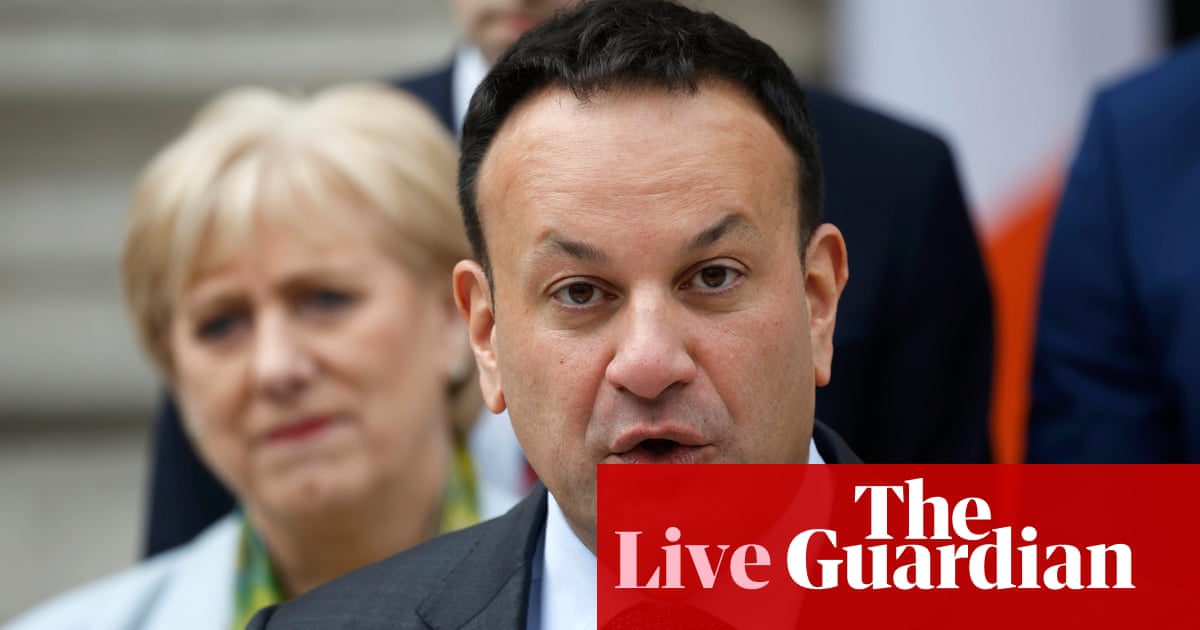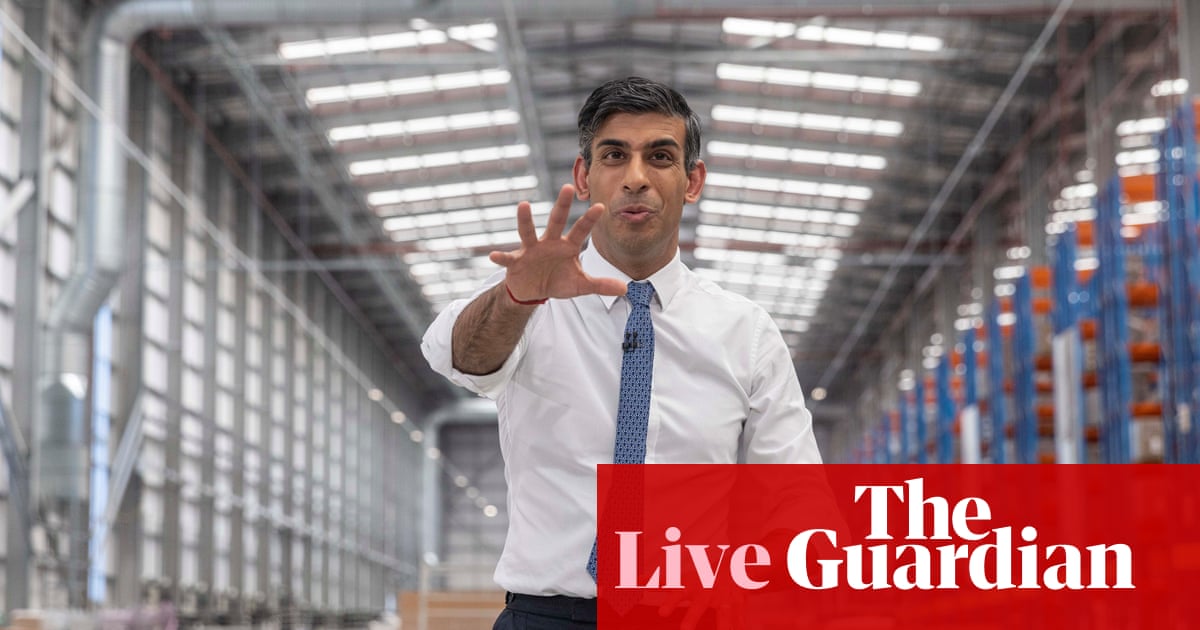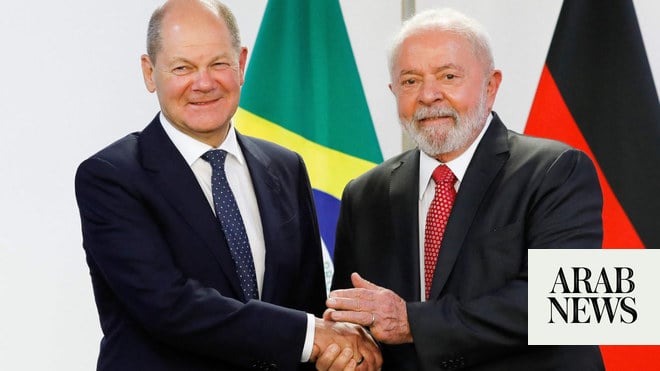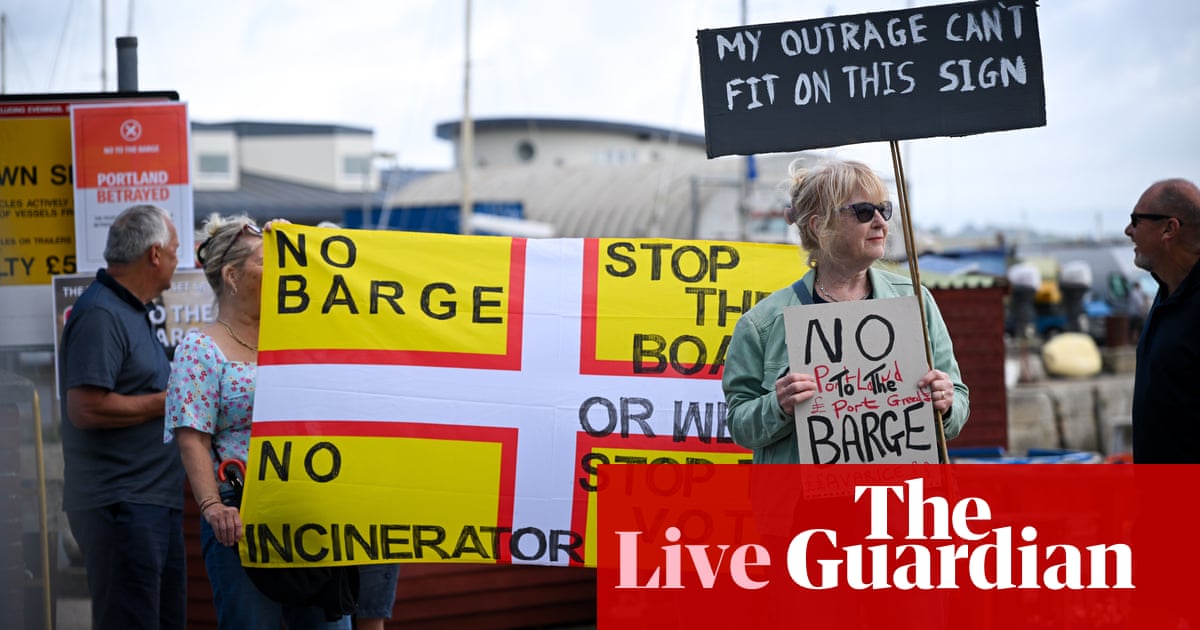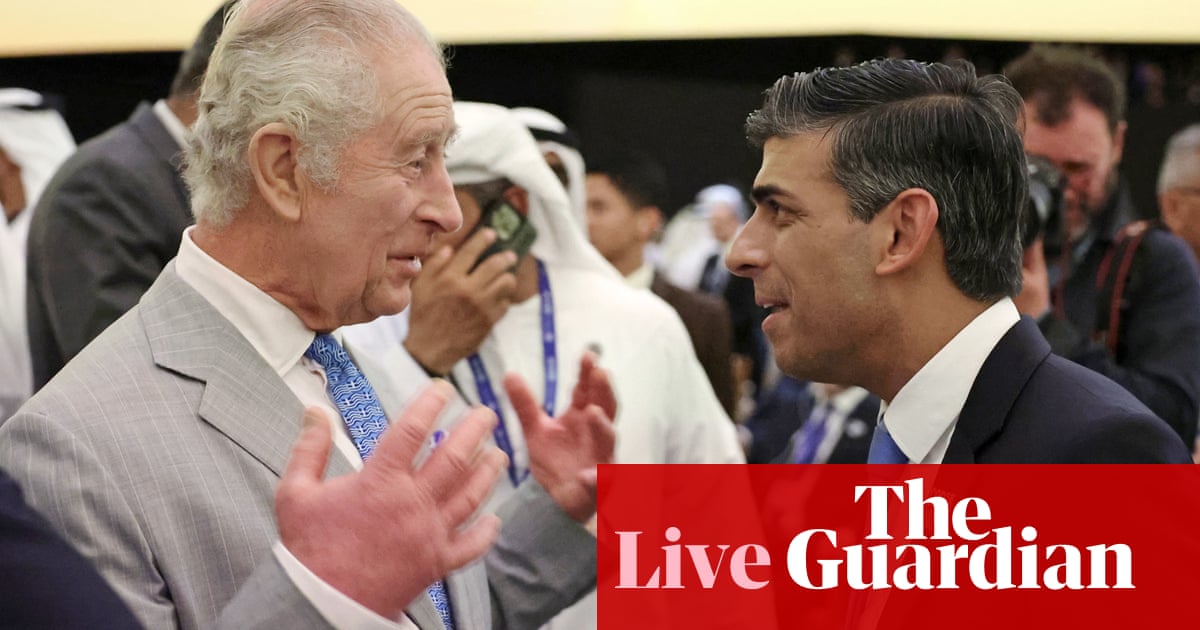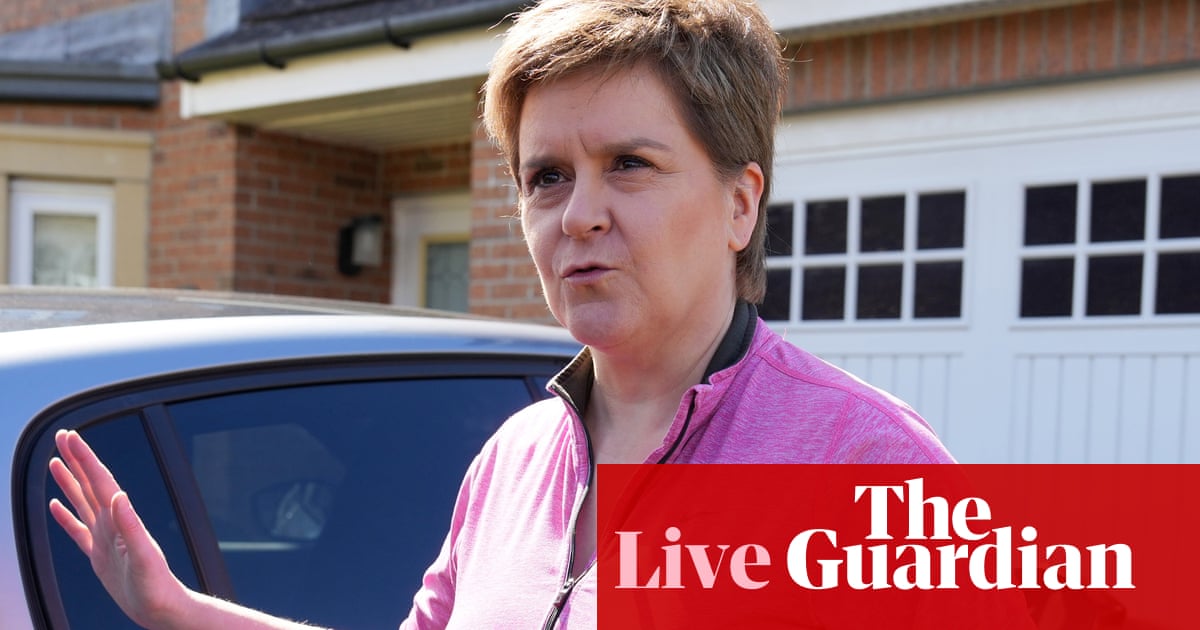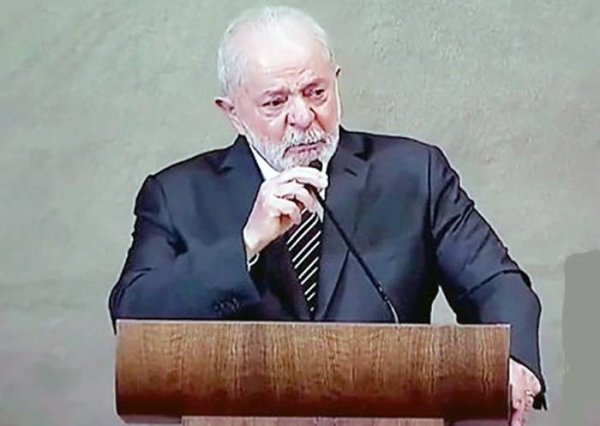
Lula: "Brazil is back"
He warms to this theme. “I would like to say to you all that Brazil is back. Brazil is back to resume its ties with the world and to once again fight hunger in the world. To cooperate once again with the poorest countries – above all Africa – to cooperate with technology transfers to build a better future for our peoples.
“We are back. We are back to help build a peaceful world order based on dialogue and multilateralism. The world of today is not the same as the world in 1945.”
He says the veto power of the security council must be ended for true peace.
We’re winding up for the day here, after all that Lula excitement. Time for a round of Caipirinhas please!
While they’re being mixed, what happened on day nine?
SUMMARY:
The Brazilian president-elect, Luiz Inácio Lula da Silva (Lula for short), addressed Cop27 and promised that “Brazil is back”.
He confirmed that Germany and Norway will reopen the Amazon fund, called for Cop30 to be held in the Amazon rainforest, and announced that he would be setting up a ministry for Indigenous people.
Lula also said that it is time to reform the UN and the global settlement. “The world has changed.”
Elsewhere, Costa Rica which now has a new leader, has backed away from the coalition it co-founded to end oil and gas
Interest in a proposal to “phase down all fossil fuels” is growing, with even the US now giving (extremely qualified) support
There is continuing anxiety over the glacial progress over loss and damage negotiations. The Alliance of Small Island States, a negotiating bloc, fear many developed countries are backtracking on their commitment to make progress.
There is anxiety elsewhere too, that countries are trying to backslide on their climate commitments, with the first tentative drafts of decisions from the summit showing attempts to unpick agreements and water down promises.
That’s it for today! My colleague Sandra Laville will be blogging first thing in the morning. Thanks for joining us!
Support for a proposal to "phase down all fossil fuels" is growing
According to Bloomberg, the US’s climate envoy John Kerry is now giving his backing to “a proposal to phase down all fossil fuels at the UN climate conference as long as it focuses on projects with unchecked emissions”.
India has already called for all countries to commit to phasing down fossil fuels with the UK’s backing, and earlier in the week the EU joined the call too.
Bloomberg reports Kerry as saying:
“It has to be unabated oil and gas … Phase down, unabated, over time. The time is a question, but ‘phase down’ is the language we supported.”
Support for the principle appears to be widening. Tuvalu’s Minister of Finance, Seve Paeniu, says: “Tuvalu welcomes India and the European Unions suggestion to include ‘all’ fossil fuel phase out in the COP27 cover text and encourages governments to join this call in the face of the climate emergency. The world needs a just and equitable energy transition, and investing in 100% renewable energy is the only way to achieve this.”
And Stephanie Crouzat, the climate ambassador for France, says: “India is floating the idea to phase down all fossil fuels, I think we should take them up on it. We should push phasing down and eventually phasing out.”
Outside Cop27, climate activists have targetted another work of art, following in the footsteps of the soup-and-Sunflowers attack that went viral.
Now members of Letzte Generation Österreich (Last Generation Austria) have smeared “non-toxic fake oil” all over the glass covering of Gustav Klimt’s Death and Life. The Guardian’s art critic, Jonathan Jones, is not impressed.
I can’t pretend to respect this form of protest. It makes no sense and possesses no moral coherence. It is arrogant to go into a museum and assume everyone around you is some kind of complacent aesthete who doesn’t care about the environment. “What is worth more? Art or life?” asked the Just Stop Oil activists who threw the tomato soup at Van Gogh’s Sunflowers. What a ridiculously false debate. Loving art does not devalue life – on the contrary, it helps us value and see nature. All the art in the National Gallery in London, where the soup attack happened, from Giotto to Van Gogh, is based on looking hard at life. It praises our planet.
Vulnerable developing nations are getting very worried about the loss and damage negotiations at Cop27. The issue of funds to recover from the climate disasters that poorer nations did very little to cause is pivotal to the success of the summit.
But the Alliance of Small Island States, a negotiating bloc, fear many developed countries are backtracking on their commitment to make progress. Molwyn Joseph, Aosis chair and the environment and health minister of Antigua and Barbuda, said:
“Aosis and our fellow developing countries have toiled for the past 30 years to be heard on this issue. We have come too far to fail. But some developed countries are furiously trying to stall progress and even worse, attempting to undermine small island developing states. So, not only are they causing the worst impacts of the climate crisis, they are playing games with us.”
“There have only been informal consultations, to date, on this critical agenda item, and no official launch of negotiations.”
“If other countries continue to cast aside small islands to serve the interests of the fossil fuel industry, they cannot expect our people to swim in a stagnant pool. The tide has turned on loss and damage. Why do you continue to turn a deaf ear to the cries of our people? I am being very clear – small island developing states will no longer stand for delay on loss and damage finance.”
The news that Germany and Norway will reopen the Amazon fund has been welcomed. Arild Skedsmo, senior analyst at Norway’s largest private pension company, KLP (which controls about US$80bn) says: “In Norway, we had an immediate positive reaction to Lula’s victory with our government offering to reopen access to the financial resources of the Amazon Fund. These resources were frozen as a result of the negative policy actions by outgoing President Bolsonaro that drove deforestation to record high levels and undermined indigenous rights.”
He welcomed Lula’s speech. “The President-elect is right to emphasise that the survival of Amazon is needed for survival of the planet given the threat of climate change. It is welcome that Lula emphasised protection in all Brazil’s biomes including with international support. Indigenous peoples’ rights are now back high on the agenda as Lula vowed to promote indigenous peoples as protagonists and beneficiaries which is a very welcome, stark change from the outgoing President’s policies.”
Hallo, I’m Bibi van der Zee and I’ll be taking over from my colleague Patrick Greenfield for the last couple of hours of the day.
The excitement of the speech from President Lula is still making itself felt. Brazil is back in the fight was his main message, and it seems to have resonated with so many of those listening.
It"s time to reform the UN, says Lula
Lula challenges the current global settlement. “When I was president of Brazil, I said the UN had to advance. I can’t imagine that the UN is directed by the same geopolitical rational of world war two. The world has changed. Continents want to be represented. There’s no explanation why the winners of world war two should be in charge and the directors of the UN security council. The world needs new global governance on the climate issue.”
He adds: “If there’s one thing we need to change on global governance, it’s climate change. Otherwise time goes by, we die and things do not change. It’s with this objective that I came back to unite us. I didn’t come back to do what I did already. I came back to do more. I want to make a fairer world and a more effective humanity. Thank you very much.”
Cheers once again, as he bows to the audience then pauses to have his picture taken with some of them. There is a general starstruck feeling in the room.
Lula says when Brazil chairs the G20 summit in 2024, the climate agenda will be one of the main priorities. He will be pressing rich countries to discuss their promises.
“I would like to remind you that rich countries said they would raise $100bn at Cop15 in Copenhagen to help the less developed countries to face climate change.”
This has not, as everyone knows, happened. He says that is what leads us to another important theme of this Cop.
“We need financial mechanisms to remedy loss and damage caused by climate change. We cannot postpone this debate. We need to deal with the reality of countries that have to protect the territorial integrity of their countries threatened. It is time to act. We cannot live with this rush towards the abyss.”
Now he puts forward two proposals. The first is a meeting of the Amazon countries to look at the integrated development of the region.
“The second proposal is for Brazil to host Cop30 in 2025.” (Cheers from the audience who seem enthusiastic about being in Brazil in November.) “There are many cities that could host Cop30. I want to say it should be in the Amazon region.”
He says he would like everyone here to understand the importance of this part of the world.
He says: “I am sure that Brazilian agri-business will be a strategic ally in our government looking for regenerative and sustainable agriculture. We have 30m hectares of degraded lands. We don’t need to deforest one square metre to be one of the largest food producers in the world.
“That’s why we are proposing a world alliance for food security and the reduction of inequality.”
He is seeking cooperation between the Democratic Republic of the Congo, Indonesia and Brazil, the countries that have 52% of primary forests. “We will seek financing mechanisms to stop the advancement of global warming.”
He now announces that Germany and Norway are restarting the Amazon fund, which was shut down under the previous Brazilian president, Jair Bolsonaro. “We are open to international cooperation to conserve our biomes. But always under Brazilian sovereignty. We will never give it up,” Lula says.
Lula will create a Ministry for Indigenous people
Again he speaks about what his government will do on deforestation: “There is no planet security without a protected Amazon. We will do whatever it takes to have zero deforestation and degradations of our biomes.
“For this reason, I would like to announce that efforts to fight climate change will have the highest profile in my next government. We will prioritise the fight against deforestation of all of our biomes and reverse years of the previous governments. In 2021, we had a deforestation of 13,000 sq km. The destruction will stay in the past.
“Environmental crimes have grown in a scary way under the previous government. We will strengthen oversight bodies. We will punish illegal activities: gold miners, loggers, farmers.”
Lula also announces a ministry for Indigenous people. “These actions affect native people above all. That is why we will create a ministry of native people so they can have their own voice.”
And now he is returning specifically to the subject of the climate crisis and the way it will affect people.
“Nobody is safe. In the US, they live with tropical storms and more and more powerful storms. In Brazil, which is a forest and hydro power, we experienced drought and experienced devastating floods. Europe faces an extreme heat situation with fires and unprecedented deaths.
“And although it is the continent with the lowest GHG emissions, Africa has drought. I repeat: nobody is safe.”
“There is not two Brazils. I want to say there are not two planet Earths. We are one sole species called humanity.” He attacks inequality, arguing that it will undermine everyone’s future.
Lula says: “We need to build confidence with our people and overcome our immediate national interest so we can build a new international order to overcome the needs of the present times.”
Lula: "Brazil is back"
He warms to this theme. “I would like to say to you all that Brazil is back. Brazil is back to resume its ties with the world and to once again fight hunger in the world. To cooperate once again with the poorest countries – above all Africa – to cooperate with technology transfers to build a better future for our peoples.
“We are back. We are back to help build a peaceful world order based on dialogue and multilateralism. The world of today is not the same as the world in 1945.”
He says the veto power of the security council must be ended for true peace.
“Brazil is back,” he says simply, and is greeted by cheers.
Now he turns to the subject of the Amazon and to his renewed pledges to fight deforestation.
“The survival of the Amazon also depended on the election. Civilisation and values are back. The respect and human rights are back. Brazil has already shown the world that that path to ending deforestation. We reduced deforestation 83% while increasing agricultural GDP 75%.”
He says frankly: “We need more resources for a problem that was created by rich countries but is disproportionally felt by the most vulnerable.”
The good news, he says, is that Brazil will rejoin the fight. “Today, I am here to say that Brazil is ready to join once again to join effort to build a healthier planets. Brazil has just ended elections. One of the most decisive in its history. It was followed in an unprecedented way by other countries. It could help control the rise of authoritarian right and climate denialists in the world.”




